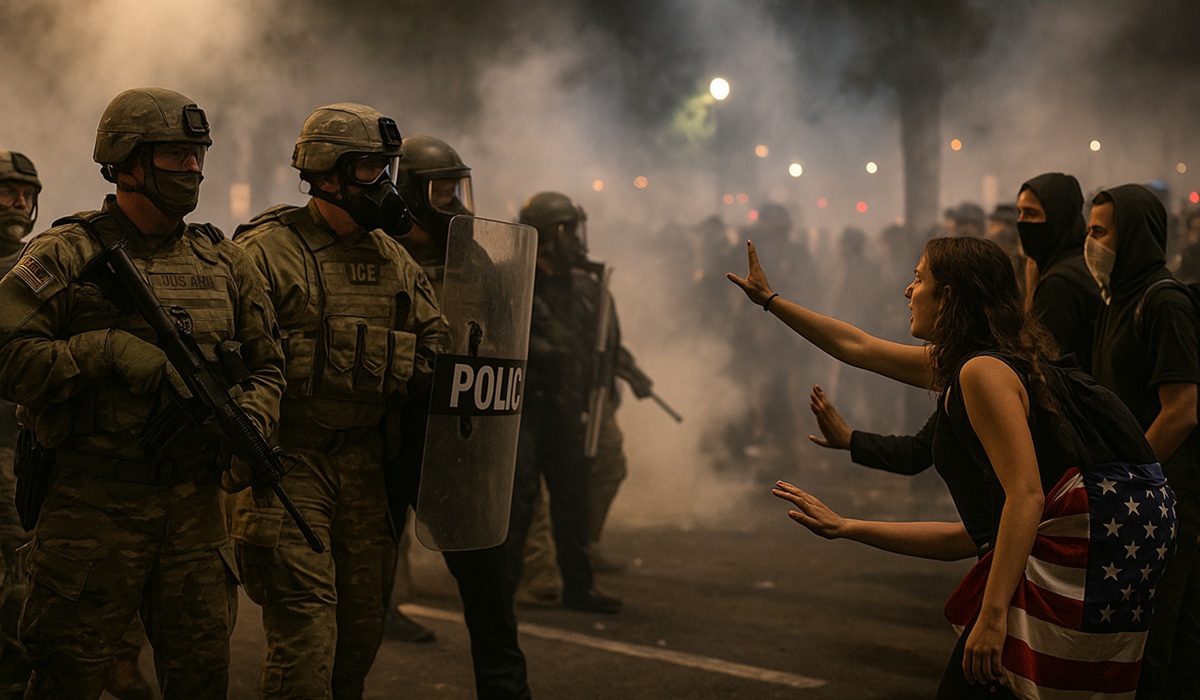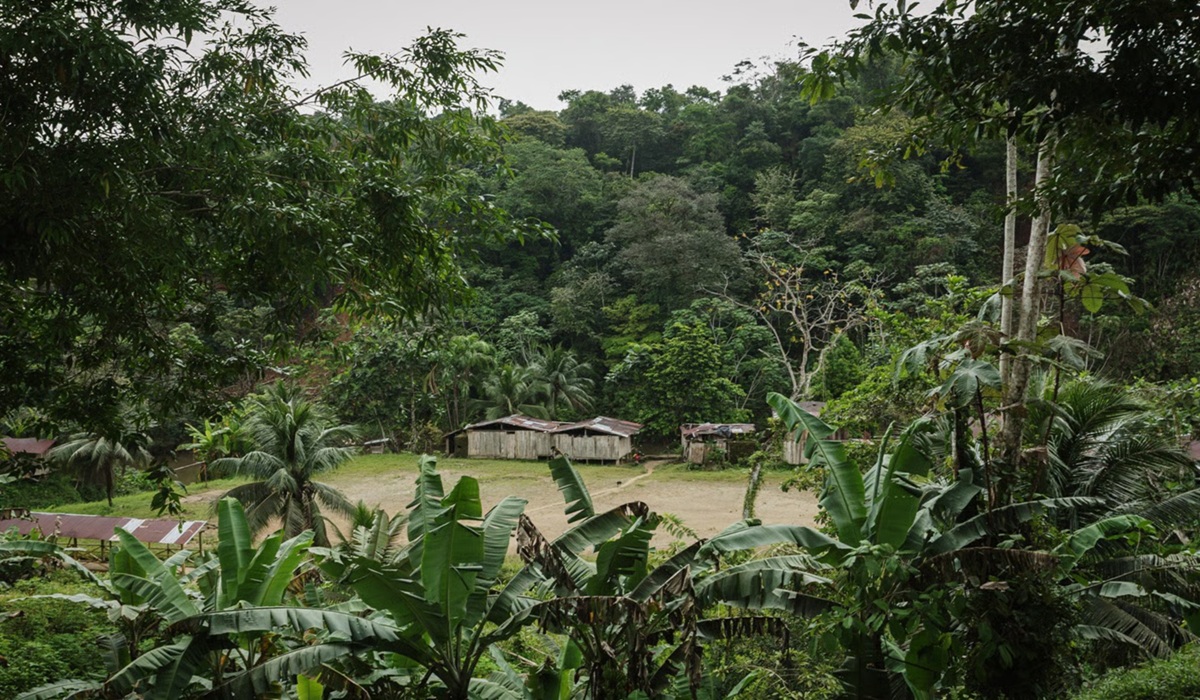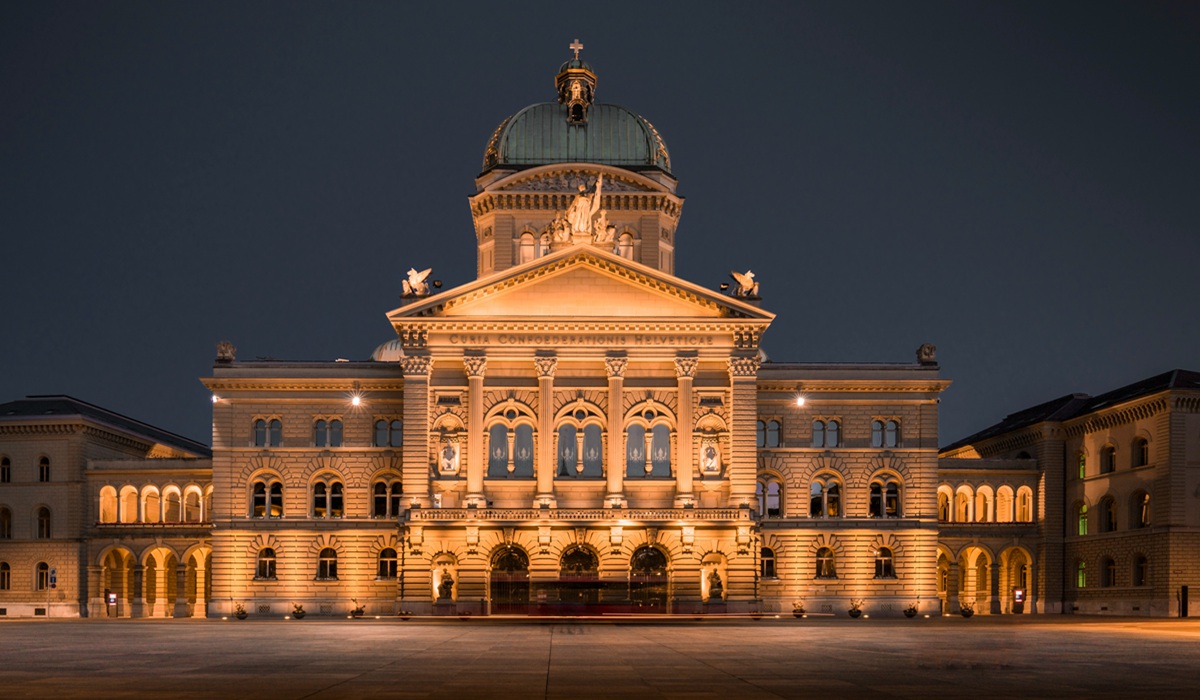The Tyranny Within: How President Trump Has Turned The American Military Against Its People
- TDS News
- Trending News
- October 8, 2025

By: Donovan Martin Sr, Editor in Chief
In the long, tumultuous story of the American Republic, there have been moments of crisis that tested its institutions, its people, and its moral compass. But seldom has there been a period as chilling as this—when the nation’s Commander-in-Chief, President Donald J. Trump, has turned the awesome machinery of the United States government inward, weaponizing the very instruments of freedom against the citizens they were designed to protect. What began as rhetoric—strongman posturing and promises to “restore order”—has metastasized into something far more dangerous: a deliberate and systemic effort to remake America in the image of authoritarianism.
The framers of the U.S. Constitution were explicit in their distrust of concentrated power. They feared that any executive, left unchecked, might one day blur the line between protector and oppressor. Article II defines the presidency as a civilian role; the military is to remain subordinate to the people and their representatives. Yet today, the American military, the National Guard, and federal security forces are being deployed in a manner so politically targeted, so strategically divisive, that even seasoned constitutional scholars are sounding alarms reminiscent of 1930s Europe. President Trump has authorized the use of military force—not against invading armies or terrorist threats—but against American citizens exercising their right to dissent. Democratic-leaning states and cities have borne the brunt of these deployments. Governors and mayors are being undermined, their authority overrun by a federal apparatus acting as if it were an occupying force. The Insurrection Act, designed as an emergency measure for extraordinary threats, has become his political cudgel. This is not law and order; it is the corrosion of democracy masquerading as security. The Constitution envisioned checks and balances, not bayonets and barricades aimed at voters.
What makes the current moment particularly grotesque is not just the legality of Trump’s actions, but their intent. America’s divisions—racial, political, cultural—are being mined, not mended. Every policy rollout, every press conference, every executive order seems calibrated to inflame. Immigration enforcement has morphed into public spectacle; humanitarian crises at the southern border are treated as campaign fodder rather than moral failures. There is no denying that immigration requires reform. But the approach under Trump has abandoned reform for retribution. Families have been separated, asylum seekers vilified, and federal agents dispatched in tactical gear to communities whose only crime was compassion. He has not merely exploited fear—he has industrialized it. To deploy the National Guard in predominantly Democratic regions while refusing cooperation with local leaders is to send a message unmistakable in its cruelty: political opposition will be met with force. This is not governance; it is intimidation.
Historians are often reluctant to invoke comparisons to Hitler, Mussolini, or Stalin. Such analogies can feel hyperbolic, even disrespectful to the scale of past horrors. Yet when a leader consolidates power through propaganda, undermines the judiciary, militarizes domestic policy, and declares himself the sole arbiter of truth, the echoes cannot be ignored. Trump’s claim that “only I can fix it” is the battle cry of every would-be autocrat. The invocation of perpetual crisis—be it immigration, crime, or cultural decline—creates a state of dependency, where the public’s fear becomes the ruler’s leverage. Fascism, after all, thrives not on strength but on the illusion of strength: the parade, the uniform, the chant, the enemy within. The danger is not theoretical. The images of federal troops firing tear gas at protesters, of journalists arrested live on air, of peaceful assemblies declared “threats to national security,” are not scenes from a dystopian novel. They are America, here and now.
The same authoritarian impulse that governs Trump’s use of the military infects his economic policy. The tariffs—hailed by his administration as weapons of “economic nationalism”—have devastated American farmers, kneecapped the auto industry, and sent shockwaves through the global supply chain. Once-thriving export markets in Asia and Europe have turned elsewhere, abandoning American producers to bankruptcy and despair. Meanwhile, the tech sector—once the crown jewel of American innovation—has been battered by retaliatory measures from allies and adversaries alike. Silicon Valley, long a bastion of U.S. soft power, now finds itself entangled in trade wars and visa bans, its global workforce shrinking under the weight of xenophobic bureaucracy. Trump’s defenders point to low unemployment and stock market highs during earlier periods of his presidency. But those metrics now feel like mirages—artificial peaks achieved through reckless tax cuts and deregulation, collapsing under the pressure of tariffs and conflict. His policies have not strengthened the working class; they have hollowed it out. Even America’s allies are exhausted. NATO members, once unified by shared purpose, are now wary partners navigating the tantrums of a superpower gone rogue. Canada, Germany, South Korea—nations that have stood shoulder to shoulder with the United States for decades—find themselves insulted, tariffed, and threatened for daring to disagree. America’s credibility, once its greatest export, is now its most squandered resource.
The tragedy of the Trump presidency is compounded by the spectacle of its leader’s decline. Even among conservative circles, whispers have grown louder about the President’s cognitive stability—his erratic speeches, his slurred improvisations, his inability to track his own talking points. Supporters once laughed off his verbal tangles as “Trump being Trump,” but the laughter has quieted. This is not a question of age alone; it is a question of fitness. To wield the immense power of the U.S. presidency while demonstrating cognitive impairment is to invite catastrophe. And yet, as institutions bend and advisers are replaced by loyalists, there are fewer and fewer voices willing to intervene. The same Republicans who once branded Joe Biden unfit for office now defend behavior far more erratic, far more dangerous, from the man in the Oval Office. The result is a nation drifting toward one-man rule, not by legal decree but by psychological default.
America’s wars no longer make headlines—they are waged quietly, through drone strikes, covert deployments, and proxy conflicts. Yet make no mistake: Trump’s America remains addicted to the battlefield. The bombs dropped in sovereign nations, the arms sales to regimes with abysmal human rights records, the quiet expansion of military presence in regions like the Caribbean and the Middle East—all bear the fingerprints of an administration that equates militarism with masculinity. The world watches in disbelief as the self-proclaimed beacon of democracy behaves like an empire in decline, flailing outward to distract from its internal decay. China and Russia exploit the chaos, portraying themselves as more stable alternatives. Europe hedges its alliances. Developing nations—once inspired by America’s constitutional ideals—now see only hypocrisy.
Perhaps the most disturbing element of this entire saga is not Trump himself but the silence surrounding him. Congress, once the guardian of oversight, has surrendered its spine. The judiciary, stacked with partisan appointees, offers only selective resistance. The press, vilified as “the enemy of the people,” continues to operate under siege conditions. This is how democracies die—not in a single coup, but in a series of quiet concessions. Each norm eroded becomes a precedent; each outrage unpunished becomes permission for the next. Trump has mastered the art of exhaustion: flood the system with so much chaos that accountability becomes impossible. Meanwhile, millions of Americans—many of them decent, hard-working citizens—cling to him out of loyalty, fear, or desperation. They are told that criticism is treason, that truth is fake, that their suffering is someone else’s fault. The great American experiment, founded on reason and debate, has devolved into a cult of personality.
History offers no comfort here. No republic that embraced authoritarianism ever reclaimed its innocence easily. The path from democracy to dictatorship is rarely abrupt; it is paved with excuses, wrapped in flags, and justified as “temporary.” Trump insists he is defending America. But in reality, he is defending his own power, and in the process, he is dismantling the very nation he claims to love. The Founding Fathers envisioned a president as servant of the people, not their ruler. They built a Constitution not for strongmen, but against them. If this era has taught anything, it is that tyranny can wear a suit, wave a flag, and quote the Bible while trampling its pages. The question now is not whether Trump will continue his authoritarian march; it is whether the American people will continue to follow.
For the farmers driven into insolvency, the tech workers stranded by visa bans, the protestors beaten in the streets, and the allies alienated abroad—this administration has been a masterclass in betrayal. Yet within that betrayal lies a mirror. America must confront the reflection it has avoided for decades: that its addiction to militarism, exceptionalism, and fear has made it vulnerable to the very tyranny it once fought to destroy. Trump did not invent America’s divisions; he exploited them. He did not write the script of empire; he simply performed it louder. But his presidency has revealed, with brutal clarity, that the safeguards of democracy are only as strong as the citizens who defend them. In the end, history will not remember the tweets or the rallies. It will remember whether America—the nation that once swore an oath to liberty—allowed itself to become the thing it feared most. And if it does, the epitaph will not be written by enemies abroad, but by the silence of those who knew better and did nothing.








